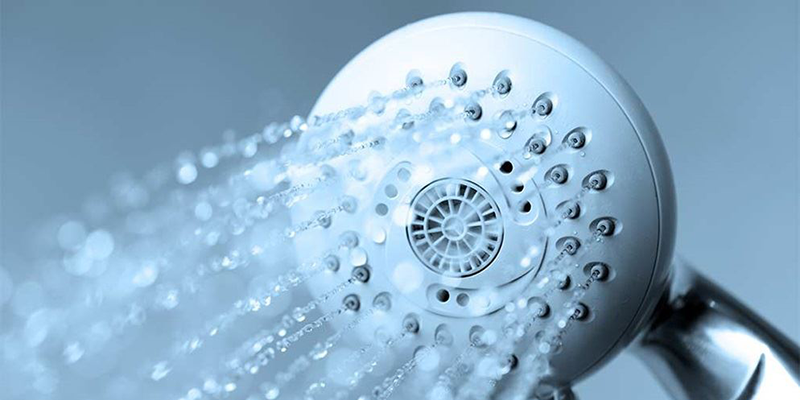Look into new Hot Water Systems before your old one dies.....Water heating accounts for a quarter of typical household energy use – and it can be even more. It's worth reviewing your hot water use well before your current system dies and then checking out the alternatives. You may find a hot water system (HWS) that saves energy and money and is kinder to the environment. The below information is from the CHOICE website.
Electric or gas, solar or heat pump ... which is best for me?
The first decision you'll need to make when choosing a HWS is the heating method: electricity, gas, solar or heat pump?
Electric
An electrically heated storage tank system is usually relatively cheap to buy and install, but is usually the most expensive to run, especially if it's on the continuous (full day) rate.
Systems that run on off-peak electricity are much cheaper to run, but need a larger tank as the water heated overnight has to last you all day. And off-peak electricity isn't available to all homes.
- A four-person household typically needs a 125–160L tank for a continuous system or 250–315L for off-peak.
- Can be installed indoors or outdoors.
- Electric instantaneous water heaters are also available.
Gas
Natural gas is a good option if you have the connection for it. It's cheaper than electricity (though gas prices are rising) and because gas rates don't vary through the day, gas hot water systems can heat water as needed.
A four-person household needs a tank of about 135–170L. You also have the option of an instantaneous system.
Usually installed outdoors due to venting requirements, but can be installed indoors with a flue.
- Have an energy efficiency star rating.
- Some have a pilot light, which uses a small amount of gas. Electric ignition is more economical, but in a blackout you can lose your hot water supply.
- Liquid petroleum gas (LPG) bottles are an alternative to natural gas – but expect to pay significantly more in running costs.
Solar
Consists of solar collector panels and a storage tank. A four-person household typically needs about four square metres of solar collector area (two panels) and a 300–360L tank. You need a large tank to allow for days with less sunlight (or more hot showers than usual).
- If your panels can't be installed in an ideal location, they may be less efficient and you'll need a larger collection area.
- The storage tank usually has an electric or gas booster element to keep the water hot on days with less sunshine.
- Comparatively expensive and time-consuming to install, but a well-chosen system will pay for itself in the long run due to very low running costs.
- Government rebates and other incentives can help offset the purchase cost.
Heat pump
A much more efficient form of electric storage tank system that works on the same principle as a fridge or air conditioner, by extracting heat from the air and using it to heat the water tank.
- Units are usually integrated (tank and compressor together) but can also be split (separate tank and compressor).
- They need to be installed in a well-ventilated area – usually outdoors.
- The compressor on the unit can be noisy, like the outdoor unit of an air conditioner, so you can't install them too close to a neighbouring home.
- They tend to work best in warm and temperate regions, but there are models designed to work well in cold climates too, and most systems have a booster element for days of cold weather or high demand.
- You'll typically need a 270–315L tank for a four-person household.
- Government rebates and other incentives can help offset the purchase cost.
Storage tank or continuous flow ('instantaneous')?
The next decision, after heating method, is whether you go for a system with a tank, or one that heats water as needed.
Storage tank
Most electric, gas, solar and heat pump hot water systems use a tank.
- Mild-steel tanks can corrode over time; maintenance every few years can help prevent this. They usually have five- to 10-year warranties.
- Stainless steel tanks are more expensive, but generally last longer and don't require as much maintenance as mild-steel tanks. They usually carry a 10-year warranty, but still require occasional maintenance (such as replacement of valves and seals).
Local water quality may dictate which type is best for you; check with the installer.
- Tanks are insulated, but there is always some heat loss over time, so it's good to install them in a sunny spot or in an insulated space.
Continuous flow
Also often referred to as "instantaneous", a continuous flow HWS heats only as much water as you need, when you need it. They aren't truly instantaneous - it can take a few seconds before hot water starts flowing from the tap, especially when there's a fair distance of pipe between the HWS and the tap.
- Most models use gas, but electric models are available.
- As there are no heat losses as with water stored in a tank, they're often cheaper to run than storage systems.
- Electric models will use the full electricity tariff for whenever they are in use, so running costs may be higher than for an off-peak tank, but less than a continuous tank system.
- The size you need (flow rate in litres per minute) depends more on the number of hot water outlets the heater has to serve than on the number of people in the household. As a general rule, for a two-bathroom house you need a flow rate of about 22–24 L/min. Talk to your supplier to find the right capacity for your home.
Visit the CHOICE Website to read further information about choosing your Hot Water System or call our specialist on 1800 234 732. 24/7 Hotwater Direct services the entire Adelaide region, all your Hot Water System and Rain Water replacement and maintenance.

